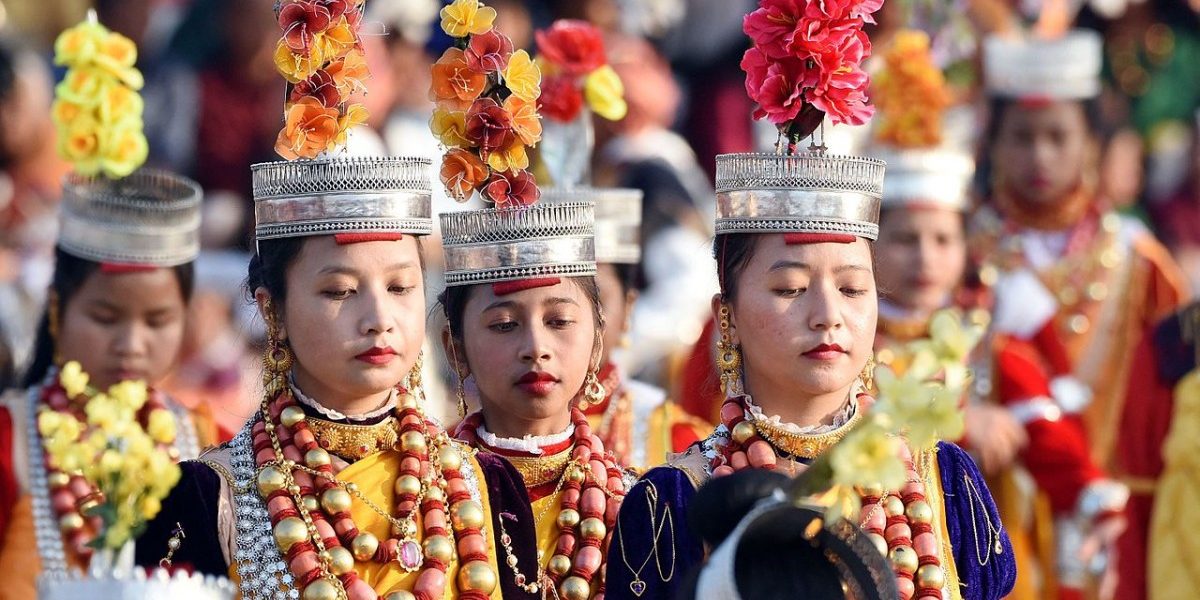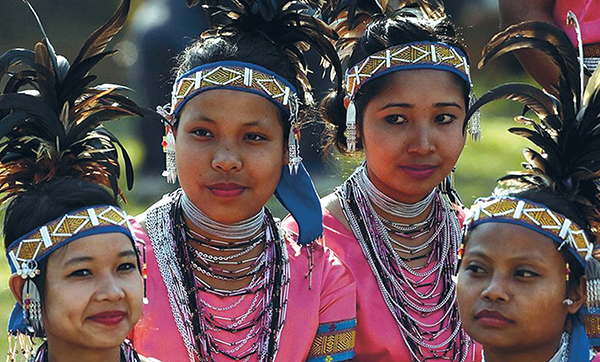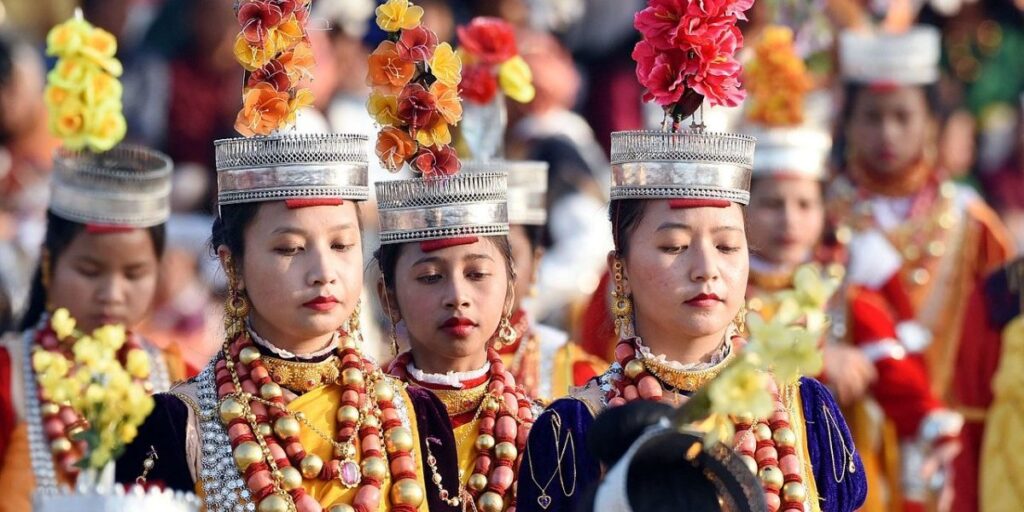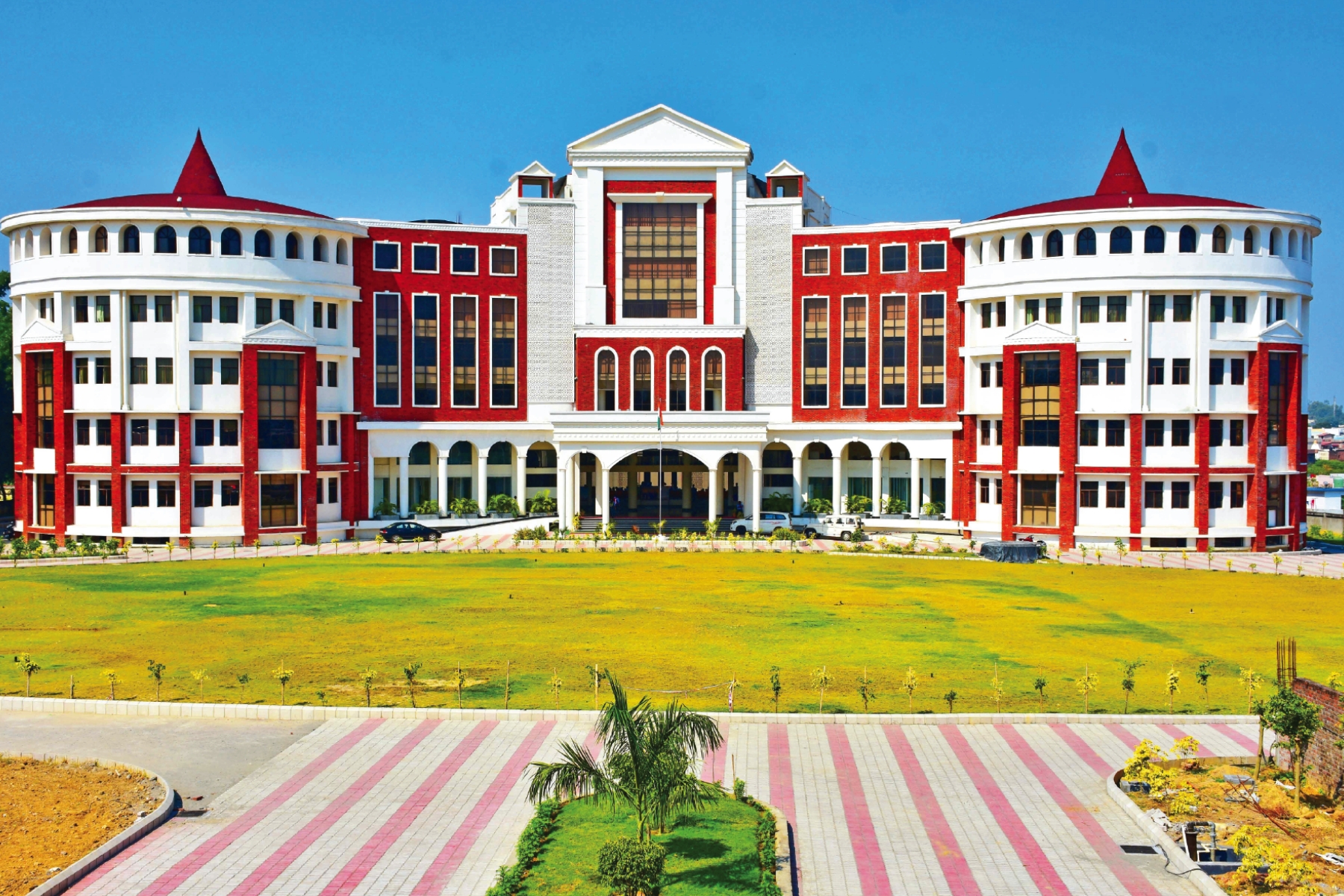-by Sanjana Khandakar [BA(JMC) II]
The Khasi Society: Tucked away in the lush green hills of Northeast India lies Shillong, the picturesque capital of Meghalaya but, there is more to its scenic charm and mistic landscapes. Shillong is home to something truly unique a “community” where women are not just respected but are the very core of family, culture, and tradition. Welcome to the world of the Khasi people, one of the very few matrilineal societies in the world.
The Khasi Society:
In Khasi culture, the line of inheritance along with family name, and identity are all passed down through the mother’s side not the father’s side. This means that daughters, not sons, inherit the property. And it’s not just any daughter the youngest daughter, known as Ka Khadduh, is the custodian of the ancestral home, land, and family legacy. All children take their mother’s surname, and in rare cases where there’s no daughter, families may even adopt a girl to ensure the continuation of the lineage. That’s how much importance is placed on the role of women in their society.
In a world where the birth of a girl is often seen as a burden in many places, here it’s the exact opposite. The birth of a girl is celebrated, not just as a new family member, but as a future guardian of their home, culture, and traditions.
Festivals like Nongkrem or Ka Pomblang rich with dance, music, and rituals they’re not just about celebration but about honouring with the women as life-givers, caretakers of the earth, and preservers of heritage. These events bring the community together to celebrate fertility, the harvest, and ancestral spirits, all of which revolve around the woman’s place in the society.
One of the most beautiful aspects of Khasi society is the freedom and respect that the women enjoy, no matter their what marital status is. Widows, single mothers, or divorced women are never shamed or sidelined. They keep their property rights, their dignity, and their place in society. Unlike in many other parts of the world, there’s no stigma attached to being on your own as a woman.
Even marriage works a bit differently here. After tying the knot, the husband moves into his wife’s home and becomes part of her maternal family something totally opposite of what we see in most marriages . If things don’t work out and the couple separates, the husband simply returns to his maternal home. The children, however, stay with their mother, preserving the maternal bond and structure.
In a world where patriarchy still dominates many cultures, the Khasi way of life stands as a powerful example of what gender respect and balance can look like. It’s not a reversal of roles—it’s a reminder that a woman’s place in the world can be powerful, central, and deeply respected.









